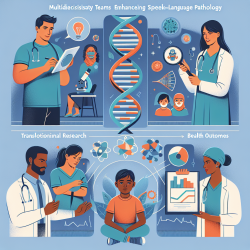The Power of Media in Suicide Prevention: Insights from Canadian News During COVID-19
As speech-language pathologists dedicated to creating positive outcomes for children, understanding the impact of media on mental health is crucial. The research article titled "Canadian news media coverage of suicide during the COVID-19 pandemic" offers valuable insights into how media coverage can influence suicidal behavior, highlighting both the potential risks and benefits.
Understanding the Effects: Papageno vs. Werther
The study emphasizes two contrasting effects of media reporting on suicide: the Werther effect and the Papageno effect. The Werther effect refers to an increase in suicides following sensationalized media coverage, particularly when reports focus on celebrity suicides or provide detailed descriptions of methods. In contrast, the Papageno effect occurs when media coverage includes stories of hope and recovery, highlighting that suicide is preventable and promoting available resources for help.
Key Findings from the Research
The research analyzed Canadian news articles from the first year of the COVID-19 pandemic, examining their adherence to responsible reporting guidelines. Here are some significant findings:
- Articles discussing suicide in the context of COVID-19 were more likely to include helpful content, such as expert quotes (68.0% vs. 16.8%) and help-seeking information (56.3% vs. 23.6%), compared to non-COVID articles.
- Fewer than 10% of all articles provided monocausal, glamourized, or sensational accounts of suicide, indicating some adherence to responsible reporting guidelines.
- The qualitative analysis identified three key themes: epidemiology of suicidal behavior, self-care and communal care, and gaps in mental health care.
Implications for Practitioners
For practitioners, these findings underscore the importance of advocating for responsible media reporting as a suicide prevention strategy. Here are some actionable steps:
- Encourage media outlets to include help-seeking information and expert quotes in their coverage of suicide-related topics.
- Promote the dissemination of stories that focus on recovery, resilience, and available mental health resources.
- Engage with journalists and media professionals to educate them about the Papageno effect and the importance of responsible reporting.
Encouraging Further Research
The study highlights the need for ongoing research to better understand the impact of media on suicide rates, particularly during crises like the COVID-19 pandemic. Practitioners can contribute by:
- Collaborating with researchers to study the effects of media coverage on mental health outcomes.
- Participating in interdisciplinary efforts to develop and promote guidelines for responsible reporting.
To read the original research paper, please follow this link: Canadian news media coverage of suicide during the COVID-19 pandemic.










